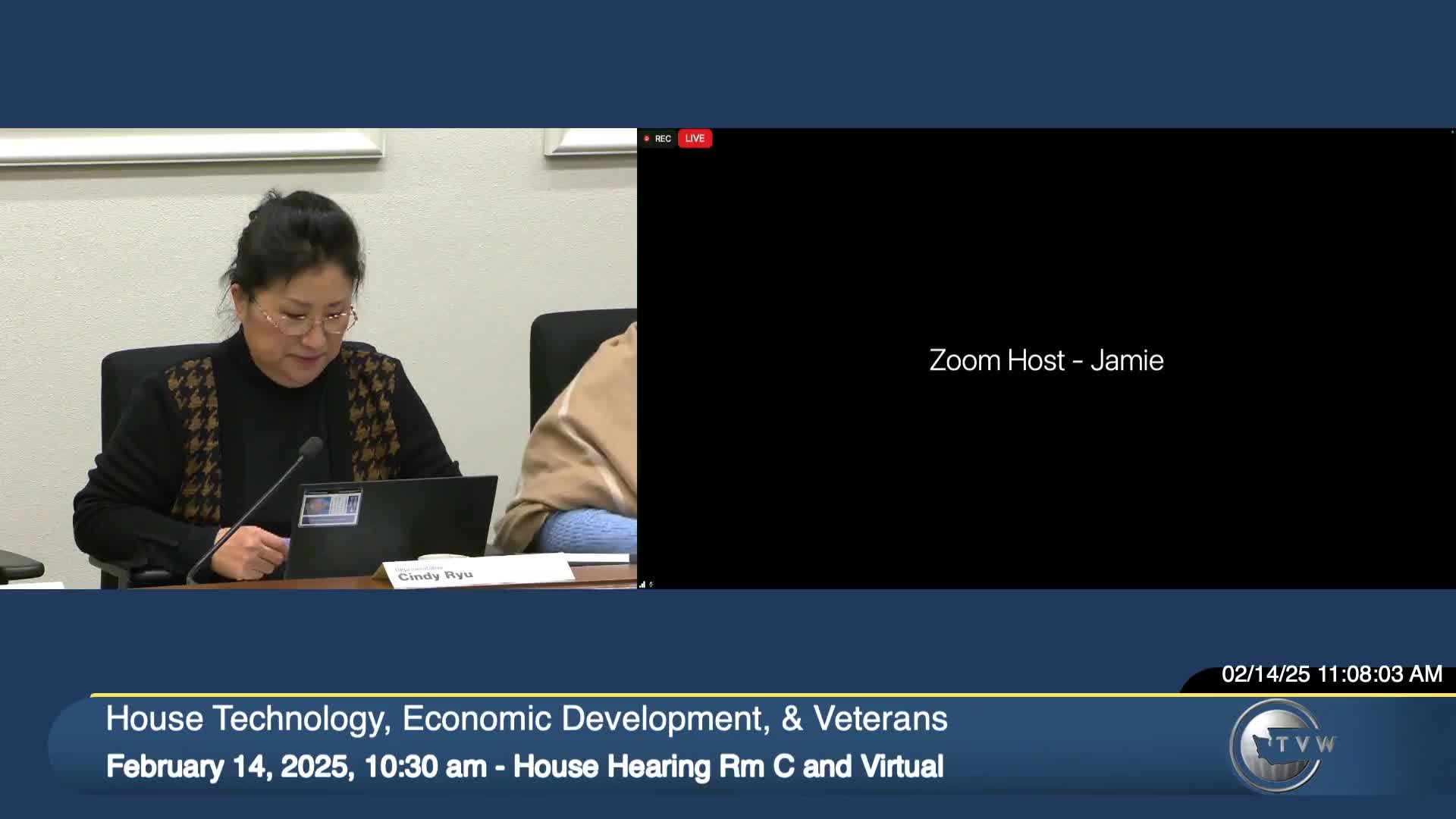Committee Advances Data‑Privacy Bill After Lengthy Amendments Debate

Summary
The Technology, Economic Development and Veterans Committee on Feb. 14 reported out a proposed substitute of House Bill 1671 (data privacy) with a due‑pass recommendation after an extended debate over several amendments.
The Technology, Economic Development and Veterans Committee on Feb. 14 reported out a proposed substitute of House Bill 1671 (data privacy) with a due‑pass recommendation after an extended debate over several amendments.
Martha Whaling, committee staff, briefed members on the proposed substitute. She said the substitute modifies the bill’s consumer definition, clarifies presumption of Washington residency based on location, narrows certain definitions for government contracts, and adds limited exemptions for journalistic activities and specified insurance‑fraud reporting organizations. The substitute also requires the attorney general to offer an opportunity to cure potential violations, with that opportunity expiring on Aug. 1, 2027.
Committee discussion focused on four amendment packages. Representative Keaton moved amendment pool 110 (language narrowing the definition of “dark pattern” to align with other pending bills), which the committee adopted. Representative Barnard’s amendment pool 108 — to expand applicability to state government entities and their contracted service providers — was debated as raising public‑records and transparency issues and was not adopted. Pool 109, addressing loyalty and rewards programs, was offered to protect those programs from effective disruption; members voted not to adopt it after concerns that it would allow undisclosed sale of consumer data. The final contested amendment, pool 106, would have removed a private right of action in favor of attorney‑general enforcement only; it was also not adopted after members argued the Consumer Protection Act (CPA) precedent and private enforcement mechanisms are longstanding in Washington law.
Vice Chair Clobba defended the overall approach, saying features such as opt‑out rights for sales of personal data and restrictions on automated profiling align with other states and reflect years of work in the legislature. Representative Kloba (vice chair in later remarks) and other supporters said the bill targets surveillance‑economy practices and risks from inferred profiling. Opponents raised concerns about impacts on small businesses, loyalty programs, and the scale of a private right of action compared with other states.
After debate, the committee voted to report the proposed substitute out of committee with a due‑pass recommendation. The clerk announced the result as 7 ayes, 4 nays and 2 excused. The roll call during the meeting recorded votes by name as entered in the hearing record.
The adopted and rejected amendment actions, plus the requirement that the attorney general issue an opportunity to cure through Aug. 1, 2027, are now part of the committee record for the proposed substitute. Further changes could occur as the bill moves through floor action or conference.

